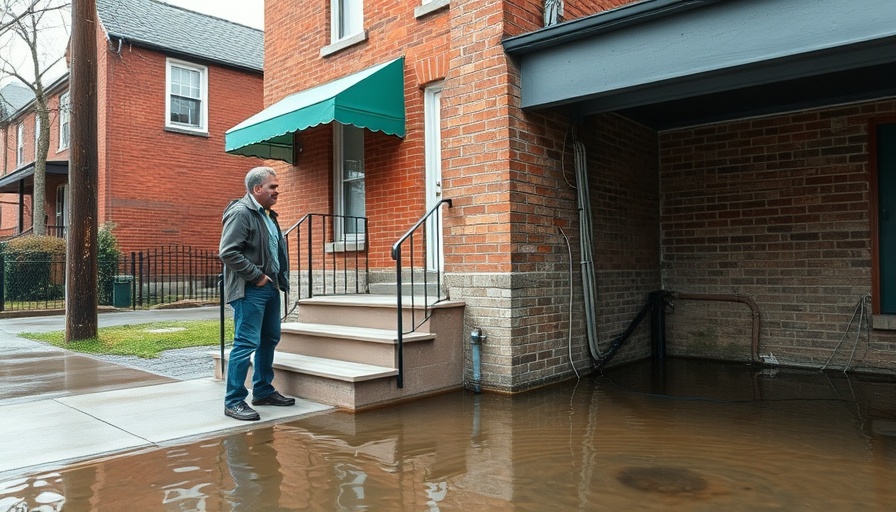
A Community Struggles with Ongoing Flooding
Residents of Detroit’s west side, particularly on Prevost Street, are facing a persistent and troubling issue: flooded basements due to heavy rainfall. Many homeowners report excessive water accumulating in their basements during storms, raising concerns over potential blockages in the local sewer system. Mark Anderson, a frustrated resident, illustrates this problem vividly; he recently experienced approximately four feet of water in his basement after a severe rain. This experience is not new for Anderson, who claims these issues have persisted for nearly two decades but have recently reached alarming new heights.
The Weight of Aging Infrastructure
The plight of Detroit residents highlights much broader systemic issues within the city’s infrastructure. Aging sewer systems across the nation often struggle to keep pace with modern-day rainfall events, which have been exacerbated by climate change. Municipalities must address these realities head-on to avoid future disasters. Irene Crowder, an 87-year-old neighbor of Anderson, has invested in a sump pump due to frequent flooding but feels trapped in a cycle of temporary fixes. “It feels like a losing battle,” she states, echoing a sentiment that many residents relate to as they deal with the repercussions of longstanding neglect.
A Call for Accountability
Residents believe that a clogged sewer, a problem they argue has been ongoing, is to blame. They feel helpless as their pleas for assistance from the Detroit Water and Sewerage Department (DWSD) often go unanswered or are met with bureaucratic delays. Residents like Anderson play detective, searching for answers as they attribute their flooding experiences to a mix of poor infrastructure management and ineffective government accountability. Anderson noted that a plumber confirmed sewer issues after inspecting a manhole cover that was nearly filled to the brim, indicating that there might still be critical problems yet unaddressed by the city.
Understanding the Complexity of the Issue
While DWSD maintains that the issues have been mitigated over time and claims their sewer system has undergone repeated cleanings, the reality faced by residents does not align with these assertions. This discrepancy sparks questions: Who truly holds the responsibility for these repeated catastrophes? As communities are heavily impacted by weather patterns, local governments must consider infrastructure upgrades as an urgent priority.
Lessons from Other Cities Facing Similar Challenges
This struggle is not unique to Detroit but mirrors challenges seen in various urban environments. For instance, cities like New Orleans have developed extensive flood mitigation systems following catastrophic flooding events. Lessons from such cities draw attention to the importance of long-term planning and investment in stormwater management systems. Could Detroit learn from these cities, and what would investment in modern solutions entail? Integrating green infrastructure, such as rain gardens, can reduce the burden on sewer systems and help mitigate flooding during heavy rains.
Future Solutions: A Collective Responsibility
As Detroit grapples with immediate cleanup efforts and demand for accountability, residents must come together to advocate for sustainable infrastructure solutions that can mitigate these disasters. It’s time for local leadership to prioritize community resilience and environmental sustainability by ensuring that their infrastructure can handle projected weather patterns. The data is clear—the increasing frequency of heavy rain events necessitates a shift in municipal policy. The residents of Detroit deserve a robust plan that addresses not only the symptoms but the root causes of these flooding issues.
While residents await solutions, community solidarity serves as a powerful counterweight to feelings of helplessness. Collective action, as seen in other affected regions, can effectively pressure municipal governments into taking timely action. It's vital for community members to amplify their voices and demand systematic change.
 Add Row
Add Row  Add
Add 




 Add Row
Add Row  Add
Add 

Write A Comment